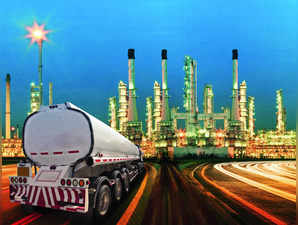
India's use of crude tankers to export diesel slows in May
Indian refiners reduce diesel shipments to Europe in May due to rising inventories and weak price spreads. April saw high exports, mostly from Reliance Industries' Jamnagar refinery, using Aframax and Suezmax vessels. Cost factors and ample European supply prompt refiners to shift focus back to Asia, exacerbating regional supply glut.
Indian refiners ' use of crude oil vessels to ship refined fuels such as diesel to key European markets has diminished in May after volumes neared two-year high levels last month, trade sources and analysts said.
That is because rising inventories in the Antwerp-Rotterdam-Amsterdam region and shaky east-west diesel price spreads undermine the case for sellers to ship large volumes of the industrial fuel West.
While more April shipments from India to Europe provided a floor for Asian margins, fewer such voyages in May will likely compel Indian refiners to shift diesel sales back to Asia , exacerbating a supply glut in the region, analysts and traders said.
Diesel exports using Suezmax and Aframax vessels Mesta, Pertamina Halmahera and Marlin Santorini - mostly from Reliance Industries ' Jamnagar refinery - reached a near two-year high of around 380,000 metric tons (2.831 million barrels) in April, Kpler , Vortexa and LSEG shiptracking data showed.
Reliance did not respond to a Reuters email for comment.
Shiptracker Kpler in February estimated a switch by 35 Aframax crude tankers to carry refined products instead of crude.
Traders switched to using Suezmax and Aframax tankers - that typically load so-called "dirty" crude oil and residue fuel - for carrying "clean" refined products after freight rates for long-range (LR) tankers spiked following Houthi attacks on ships in the Red Sea that forced longer voyages and tightened vessel availability.
"At the time it was a reflection of how tight the LR1 and LR2 clean product tanker market was given the additional tonne miles vessels were having to do to avoid the Red Sea, and the lack of available prompt tonnage to book because ships were massively displaced given the additional sail times," said Wood Mackenzie 's research analyst Emma Howsham.
The crude oil market was also weaker, as refinery maintenance in the United States and Middle East dented demand for dirty vessels, making it attractive to ship diesel using them, she added.
COST FACTOR The cost for shipping 65,000 tons of fuel on a LR1 tanker averaged $75 per ton in March and April from India to northwest Europe, compared to $60 a ton in February, pricing data from SSY Tanker showed.
Even after the cost for scrubbing and cleaning a vessel to load ultra-low sulphur diesel, that was still nearly twice the cost for shipping up to 130,000 tons of fuel on a Suezmax vessel on a similar route, traders said.
Traders have been among the biggest shippers of Indian-origin diesel, and they have the option for several discharge destinations and thus have room to ship using bigger vessels, one Europe-based trade source said.
The trend has abated for May with no dirty tankers carrying diesel on the India-northwest Europe route, shiptracking data showed, as analysts expect Europe's supply to be long.
The economics for Indian refiners to supply to Europe via the Cape of Good Hope looks challenging as "European supply looks ample in the coming months", said Woodmac's Howsham.
